
Going Hard "Core" With Bodybuilder Cliff Wilson
What drew you to the sport of bodybuilding, and what do you like most about it?
I knew I wanted to compete within the first few weeks of picking up a weight for the first time. I'm an extremely competitive person so if I am going to do something, I will probably try to compete against someone and give my all to win. It doesn't matter if it is bodybuilding or playing ping pong against my grandma (which we do every Thanksgiving), I really take every competition seriously (as does my grandma). I like the challenge of competing.I really love how this sport not only tests your physical toughness, but also mental toughness. In this sport there are those with all of the physical gifts one could hope for, but they often get beat by someone with lesser physical abilities that simply worked harder than they did. This cycle plays through over and over throughout a person?s career which can be 20+ years. The patience that this sport requires is really a beautiful thing.
On top of that, you can not only aim to beat your opponent but you also get the added challenge of trying to beat yourself by surpassing your previous best. For someone that loves competition there really is no better test than the sport of bodybuilding.
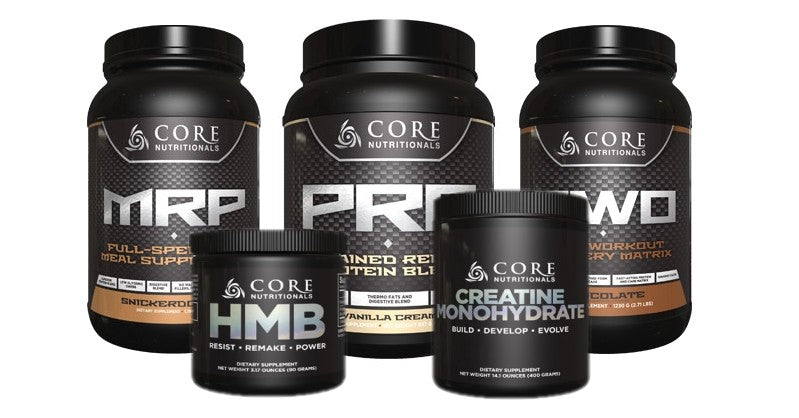
Can you tell us about your relationship with Core and what types of products they offer?
I have been a sponsored Core Nutritionals athlete/rep since 2012 and things have changed quite a bit in just the past few years. Core and Doug and Stephanie Miller brought me in and showed a lot of faith in me. At that time I had only been in the sport for a few years and was still rather new in a lot of ways. I remember when I started with Core the Facebook page only had about 900 followers now it is over 55,000. The company has grown hugely in just the past few years.I was naturally drawn to the company because of what they stand for. There are far too many supplement companies that will put out a product, hype it as the next big thing, and have full knowledge that the product is completely worthless. That is one thing that really drives me crazy.
With Core their entire philosophy revolves around only putting out products that have scientific research behind them. That is extremely important to me. I always wanted to be sure that I could stand behind an entire product line and not have to sell my integrity for a sponsorship. I?ve even been able to give input into product development from time to time which makes it even easier to stand behind the supplements.
You are involved in helping others with pre-contest services. Can you tell us about some notable success stories?
Oh man, this is hard to narrow down. Over the past few years I?ve been fortunate to have a lot of clients turn pro and win professional titles, but I think the sweetest ones are those where people really overcame a lot of adversity to achieve success. Here are a few that come to mind.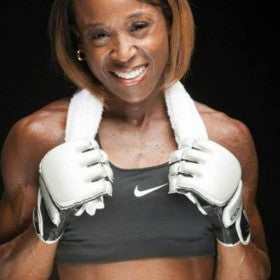 The first is Samaiyah (Maya) Council. When I started with her I don't think I had encountered anyone that was eating less on a daily basis. She had gone through a bad prep with a previous coach whose answer to everything was just eat less and do more cardio.
The first is Samaiyah (Maya) Council. When I started with her I don't think I had encountered anyone that was eating less on a daily basis. She had gone through a bad prep with a previous coach whose answer to everything was just eat less and do more cardio.
When I met her she was doing 2 + hours of cardio DAILY and eating around 1000 calories per day for several months. After nearly a year of corrective work with her metabolism we finally got her back on stage with huge improvements and a healthier, more balanced approach. She actually turned pro in the physique division.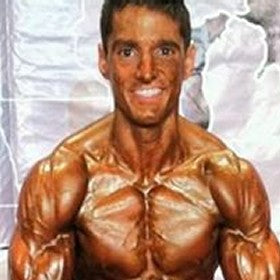 Garrett Stoerger is another great success story. In 2008 Garret was just an average out of shape guy that decided to start dropping a few pounds. He kept chipping away at it little by little and we started working together at the end of 2012. He stepped on stage in 2013 for his first bodybuilding show and won the overall title at the North Central Natural Bodybuilding Championships.
Garrett Stoerger is another great success story. In 2008 Garret was just an average out of shape guy that decided to start dropping a few pounds. He kept chipping away at it little by little and we started working together at the end of 2012. He stepped on stage in 2013 for his first bodybuilding show and won the overall title at the North Central Natural Bodybuilding Championships.
When you see how far this guy came in such a short time it is pretty astonishing. He is a perfect example that sometimes you just need to get started doing something. In the end you might surprise yourself with what you can accomplish.
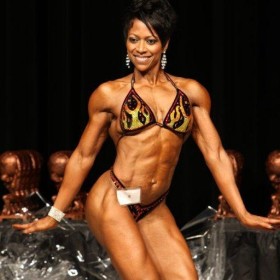 Last but not least is Eve Lewis. When I started working with Eve she was already a professional figure competitor. At her last show she placed 5th as the judges told her she needed to be leaner. So we brought her in 4 pounds leaner for her next show. She ended up placing 6th this time. Not exactly what we were hoping for.
Last but not least is Eve Lewis. When I started working with Eve she was already a professional figure competitor. At her last show she placed 5th as the judges told her she needed to be leaner. So we brought her in 4 pounds leaner for her next show. She ended up placing 6th this time. Not exactly what we were hoping for.
So we dieted off another 5 pounds for her next show. She was looking tough and many had her picked to win, but ended up placing 5th yet again. The next year we decided to push the limits and take her down another 3 pounds from her lowest yet. She was looking shredded and we thought she would be a contender. When the placings were announced she took??5th again.
That last show earned her a qualification to the DFAC world championships though. So she decided to test the waters at the biggest show of her life. We pushed her weight down even further to 113 pounds which was nearly a full 20 pounds lower than when she took her first top 5 finish two year previous. In this show, even though it was her largest competition yet she took runner up at the world finals. Many in her position would have been frustrated with being overlooked so many times but she kept fighting and making improvements until she really earned her spot.
These are all instances where people didn't have an easy road to success and to me those are the most impressive cases.
How does your approach to dieting differ from other major coaches?
Well, I think there are a lot of quality coaches out there these days. In my opinion the best ones are the ones that are able to take a scientific approach by making it applicable to real life settings. I consider myself one that also takes a scientific approach in everything that I do.However I really pride myself on trying new things. After all, every scientifically proven method started as an unproven idea. As a result, I know there are a few things I likely do differently from some of the other top coaches.
I tend to recommend higher protein intakes during the off-season than most other educated coaches. Of course, this will depend on the individual client, but overall I would say my protein recommendations are a bit higher when not actively dieting for a show.
For most coaches they recommend higher protein intakes when in a caloric deficit in order to preserve muscle tissue. Then they will lower it slightly during the off-season when total calories are high. For myself, I will usually recommend protein intake that are similar to what others would recommend when dieting, but rather than reducing during the offseason, I actually increase protein to very high levels (probably higher than most would recommend).
I have many reasons; both research-based and anecdotal for using this method. I would probably need several pages to explain why though.
I also use a different peaking approach for many of my clients. I often use something I termed a "rapid backload." This is a peaking method I use for the final week before a show. Most of my clients will consume between 900-1400 grams of carbohydrates in the day before the show. Along with this they will usually take in 4,000-10,000mg sodium and 2-3 gallons of water.
Of course, there is a lot of set up for this and I only use this for people that it is suited for, but I would say about 90% of my bodybuilding client are peaked using this method. People usually think I am crazy or stupid for using this method but I use it because it works. If it wasn?t consistent then I wouldn't use it.

My favorite training style of training is Power Block Periodization. This is a non-linear periodization plan I use with a lot of my clients.
what's your favorite workout split and why?
I wouldn't say that I really have a favorite split as I am frequently changing things. However, my favorite training style of training is Power Block Periodization. This is a non-linear periodization plan I use with a lot of my clients and myself. It is not entirely unlike PHAT but there are a few differences.
I like this method of training because it can easily be set up in many different ways depending on your goals. I've had powerlifting clients run it in preparation for a meet (tailored for their needs) and I've had bodybuilding clients run it in both the offseason and contest prep with great success. It focuses on one powerlifting style training day per week and 4-5 bodybuilding style training days for the rest of the week. There is a set progression for the weights and reps each week.
Here is an article I wrote explaining the program.
what's the biggest bulking mistake a lifter can make?
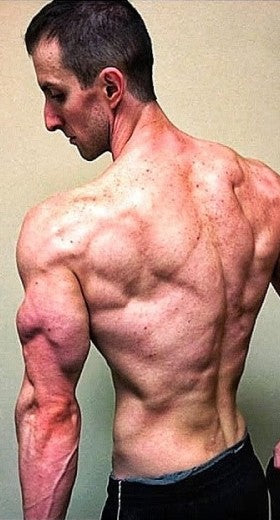 I find that this is actually different for men and women. For men, they usually make the mistake of trying to get big FAST, and as a result they just get fat. They don't consider that getting too heavy too quickly will only mean that you have to eventually diet off that extra fat and you will lose some muscle tissue in the process. While you need to put on weight to build muscle, doing it slowly and within moderation is always best. Learn to be patient.
I find that this is actually different for men and women. For men, they usually make the mistake of trying to get big FAST, and as a result they just get fat. They don't consider that getting too heavy too quickly will only mean that you have to eventually diet off that extra fat and you will lose some muscle tissue in the process. While you need to put on weight to build muscle, doing it slowly and within moderation is always best. Learn to be patient.For women I find that it is usually the opposite problem. I find most female lifters are afraid to see their weight increase even a few pounds. So they usually bring food up a bit in an effort to add muscle. Then once they see a scale increase they will tend to start bumping up cardio to try and control their weight.
Cardio is counterproductive when trying to build strength and muscle. I have seen some women doing cardio 5-7 days per week in their "growth season." That is not going to get you anywhere. You need to eat enough calories and lay off the cardio if you want to grow. The scale weight will need to go up just a bit. You can't hold contest conditioning year round.
Can you detail for us your current daily supplement regimen?
Sure thing, here is what I am currently taking.- Core ABC - 3 scoops during training, 4 scoops during the rest of the day
- Core Alpha - 2 caps daily
- Core HMB - 3 grams daily
- Core Creatine Monohydrate - 5 grams daily
- Core Taurine - 2.5 grams pre workout
- Core Fury - 2 scoops pre workout 4 days per week
- Core Pro - As needed to hit my protein requirement for the day
- Fish Oil - 3 capsules per day
- Multivitamin - once daily
- Core Flex - 8 capsules daily
- Vitamin D - 2000 IU daily
Craziest thing you've ever seen in a gym?
One of the things that I had ever seen was accomplished by one of my first clients ever named Ajay Dixon. This guy had only been seriously weight training for about 5 months and raw deadlifted 655 lbs. as a natural. A lot of natural guys are lucky if they can pull that within their career, let alone within their first year of serious training.What type of training program do you believe beginners should start with, and why?
I think most beginners don't need a lot of volume as their response to training stimulus is already so strong. A program that centers around heavier compound movements with higher frequency is usually best. However, this is almost the exact opposite of what most beginners do.Most newbies in the gym are the ones trying to pound out 25-30 sets per body part and doing nothing but cable flys and preacher curls. Not that there is anything wrong with those exercises but I don't think that those should constitute the foundation of training for someone new to the gym.
I really think upper/lower and push/pull/legs are two great splits for those just making their way into the gym. Then just use that time wisely by hitting big movements like squats, bench presses or DB presses, deadlifts, pull-ups, and rows will allow them to progress the fastest in the beginning.
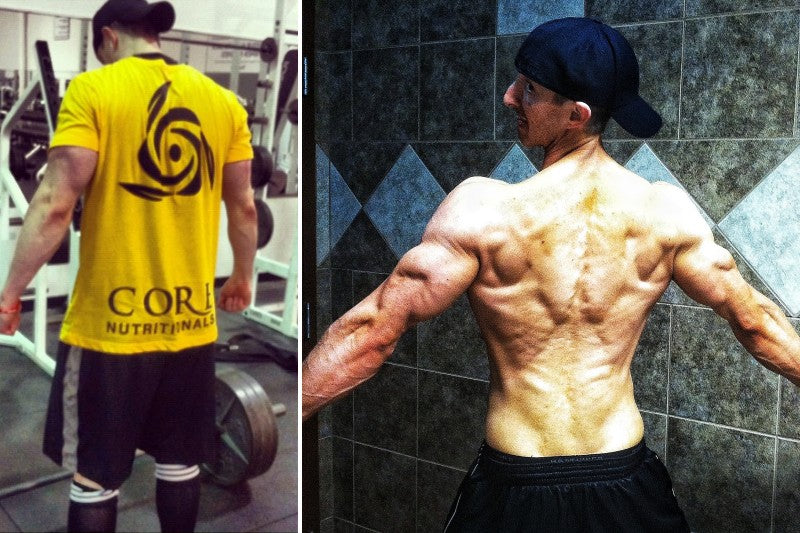
With Core Nutritionals their entire philosophy revolves around only putting out products that have scientific research behind them. That is extremely important to me.
3 tips for someone who is having a difficult time losing fat?
The first thing you have to do is count your macronutrients (protein, carbs, fat). I know a there is a big debate right now about IIFYM (if it fits your macros) vs. clean eating. Honestly, if someone likes to eat "clean" then that is their business and I really don't care, but even if you do eat "clean" you still have to count your macros.You can never truly know what is going on with your nutrition until you know how much protein, carbs, and fat you are consuming daily. If you don't know how much you are consuming you cannot even begin to control or manipulate it in your favor. Counting macros is the first step towards having complete control over your nutrition.
Secondly, people can try increasing the intensity of their cardiovascular training. HIIT has been shown in research to be more effective for fat loss so incorporating HIIT into your routine is a good idea. I constantly see people complaining about not being able to lose weight despite doing "X" amount of cardio per day. However, when I look at them perform their cardio they are so low intensity that I fear they might actually slip into a coma. Most of the time they just sit on the bike and text as they casually pedal. If you want to lose fat you have to burn some calories so even if you aren't performing HIIT, still get yourself moving with some intensity!
Lastly, I think a lot of people need to work on consistency. In my experience I find that most people are just inconsistent. They may stay on their "diet" for 3-5 days and then they stray from the plan by convincing themselves that they deserve a reward or a treat for their hard work. Well, this usually doesn't get counted and they don't realize that they are essentially undoing all of the work they put in over the previous days. This goes for cardio and weight training as well. Many will skip cardio sessions or days of training and they don't realize just how much it adds up. Set a plan and stick with it without straying one bit and you would be surprised how often things start moving on the scale. Consistency is key.
Who is your biggest fitness/lifting role model and why?
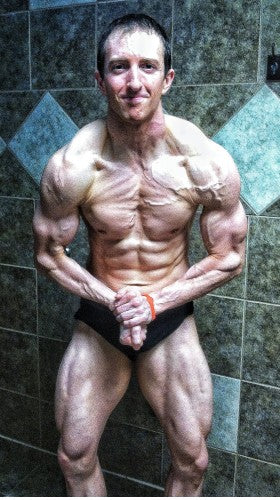 This may sound strange but I don't think I have ever had any role models in the lifting/bodybuilding world. Most of my role models are people that excel in other areas such as business or even other sports. I try to learn what makes them great at what they do and then I strive to apply what I?ve learn to all areas of my life, including training, nutrition, and business.
This may sound strange but I don't think I have ever had any role models in the lifting/bodybuilding world. Most of my role models are people that excel in other areas such as business or even other sports. I try to learn what makes them great at what they do and then I strive to apply what I?ve learn to all areas of my life, including training, nutrition, and business.Greg Popovich of the San Antonio Spurs is one person that I admire. He uses approaches and philosophies that I have been studying ever since I was 15 years old and now I have adopted a lot of those same approaches. When I work with my clients I frequently I use a quote by Jacob Riis that he has posted in the Spurs locker room.
"When nothing seems to help, I go look at a stonecutter hammering away at his rock perhaps a hundred times without as much as a crack showing in it. Yet at the hundred and first blow it will split in two, and I know it was not that blow that did it, but all that had gone before." - Jacob RiisThis quote can really be applied to everything in life. It says a lot about consistency, persistence, and patience. These are things that I think are crucial if you want to be successful in the long run, both in the gym and in life.
Top 3 favorite movies of all-time?
This may be the toughest question here. Haha! I think if I had to narrow it down to three I would pick Memento, Super Troopers, and The Count of Monte Cristo.Have you ever tried intermittent fasting and do you like it?
I've never used intermittent fasting personally, but I have used it with a few clients that REALLY struggle with hunger during contest prep. Personally, I am not a big fan of it though. It won't make any difference in terms of fat loss one way or the other, but I think that it is not advisable for those looking to retain every ounce of muscle tissue while dieting.While there is still a lot of debate about how many meals per day is optimal, I don't think 1-2 meals at the end of the day is enough. I think it is advisable to have more feedings daily in order to have more spikes in muscle protein synthesis. There is a limit to how much muscle protein synthesis can be increased at a single feeding. Once the leucine threshold is reached, protein synthesis cannot be spiked any further.
This means if you only eat 1 or 2 meals daily I don't think you will be able to "make up" for the missed opportunity to spike muscle protein synthesis more frequently during the day. While protein breakdown will decrease to a greater degree with these larger meals, I don't think it will be enough to offset the diminished protein synthesis levels on a day in and day out basis.
Intermittent fasting is extremely useful for controlling hunger though. So if someone is really struggling with compliance this may be something to try. Sometimes getting someone to follow a slightly less that optimal plan is better than having the best plan but poor compliance.
Any tips for bringing up a lagging body part?
Adding extra volume and frequency are great ways to bring up lagging body parts. If you are training every body part 2 times per week you can add a 3rd day for whatever body part might be lagging behind. This can also be alternated with periods where you increase volume for a particular area.I think it is best to use moderation with these techniques though. I find that some people go overboard trying to fix their weaknesses NOW and as a result create imbalances or injure themselves. Moderation with these techniques is always best.
what's your greatest accomplishment in life?
This is hard to say as I still hope to accomplish so much still. Right now I would say that being able to my entire living off of the sport of bodybuilding is my greatest accomplishment. This is not an easy thing to do and I realize how fortunate I am to do so.If someone would have told me coming out of high school that contest prep for bodybuilders would eventually become my full-time profession I probably wouldn't have believed them. However, I could not ask for a better job in the world.

Comments
Leave a comment